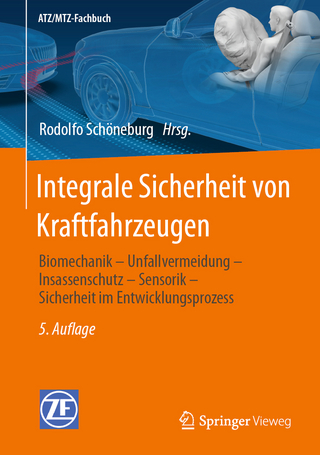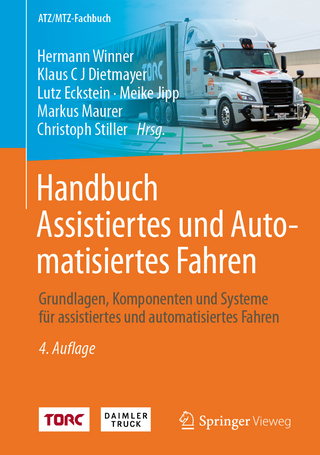
Advances in Aviation Psychology, Volume 2
Routledge (Verlag)
978-0-367-88197-9 (ISBN)
Since 1981, the biennial International Symposium on Aviation Psychology (ISAP) has been convened for the purposes of (a) presenting the latest research on human performance problems and opportunities within aviation systems, (b) envisioning design solutions that best utilize human capabilities for creating safe and efficient aviation systems, and (c) bringing together scientists, research sponsors, and operators in an effort to bridge the gap between research and applications.
Though rooted in the presentations of the 18th ISAP, held in 2015 in Dayton, Ohio, Advances in Aviation Psychology is not simply a collection of selected proceedings papers. Based upon the potential impact of emerging trends, current debates or enduring issues present in their work, select authors were invited to expand upon their work following the benefit of interactions at the symposium. Consequently the volume includes discussion of the most pressing research priorities and the latest scientific and technical priorities for addressing them.
This book is the second in a series of volumes. The aim of each volume is not only to report the latest findings in aviation psychology but also to suggest new directions for advancing the field.
Michael A. Vidulich is a research psychologist in the Air Force Research Laboratory, Ohio. His research interests are aviation psychology, mental workload and situation awareness, and adaptive aiding. He co-edited Principles and Practice of Aviation Psychology and Advances in Aviation Psychology I. Pamela S. Tsang is Professor of psychology at Wright State University in Dayton, Ohio. Her research interests are aviation psychology, attention and performance, extralaboratory-developed expertise, and cognitive aging. She co-edited Principles and Practice of Aviation Psychology and Advances in Aviation Psychology I. John Flach is Professor of psychology at Wright State University in Dayton, Ohio. His research interests are visual control of locomotion, interface design, decision-making, and motor control. John is co-author of three books and co-editor of two ecological man-machine systems books and an aviation psychology book.
Chapter 1: The History of Instrument Flight (as told to me by Carl J. Crane), Ercoline
Chapter 2: Practitioner Operational Challenges and Priorities, Rantanen, Fennell, Russi, & Dougherty
Chapter 3: Researcher Role in Aerospace Operations, Hoermann, Tsang, Vidulich, & Alexander
Chapter 4: Commonsense Statistics in Aviation Safety Research, Wickens & McCarley
Chapter 5: An Evaluation of the Utility of AT-SAT for the placement of New Controllers by Option, Byrne & Broach
Chapter 6: Visualizing Automation in Aviation Interfaces, Kirlik, Ackerman, Seefeldt, Xargay, Riddle, Talleur, Carbonari, Sha, & Hovakimyan
Chapter 7: Experimental Evaluation of Varying Feedback of a Cognitive Agent System for UAV Mission Management, Clauss, Denk, & Schulte
Chapter 8: Using Simulation to Evaluate Ait Traffic Controller Acceptability of Unmanned Aircraft with Detect and Avoid Technology, Comstock, Ghatas, Consiglio, Vincent, Chamberlain, & Hoffler
Chapter 9: Automation Surprises in Commercial Aviation: An Analysis of ASRS Reports, Tripp & Mauro
Chapter 10: Testing Eye Measures for the Sense-Assess-Augment Paradigm, Middendorf, Gruewald, Vidulich, & Galster
Chapter 11: Assessing Situation Awareness in an Unmanned Vehicle Control Task: A Case for Eye Tracking Based Metrics, Coyne, Sibley, & Monfort
Chapter 12: Four Design Choices for Haptic Shared Control, van Paassen, Boink, Abbink, Mulder, & Mulder
| Erscheinungsdatum | 16.12.2019 |
|---|---|
| Verlagsort | London |
| Sprache | englisch |
| Maße | 156 x 234 mm |
| Gewicht | 530 g |
| Themenwelt | Technik ► Fahrzeugbau / Schiffbau |
| Technik ► Luft- / Raumfahrttechnik | |
| Technik ► Umwelttechnik / Biotechnologie | |
| Wirtschaft ► Betriebswirtschaft / Management | |
| Wirtschaft ► Volkswirtschaftslehre | |
| ISBN-10 | 0-367-88197-7 / 0367881977 |
| ISBN-13 | 978-0-367-88197-9 / 9780367881979 |
| Zustand | Neuware |
| Haben Sie eine Frage zum Produkt? |
aus dem Bereich


